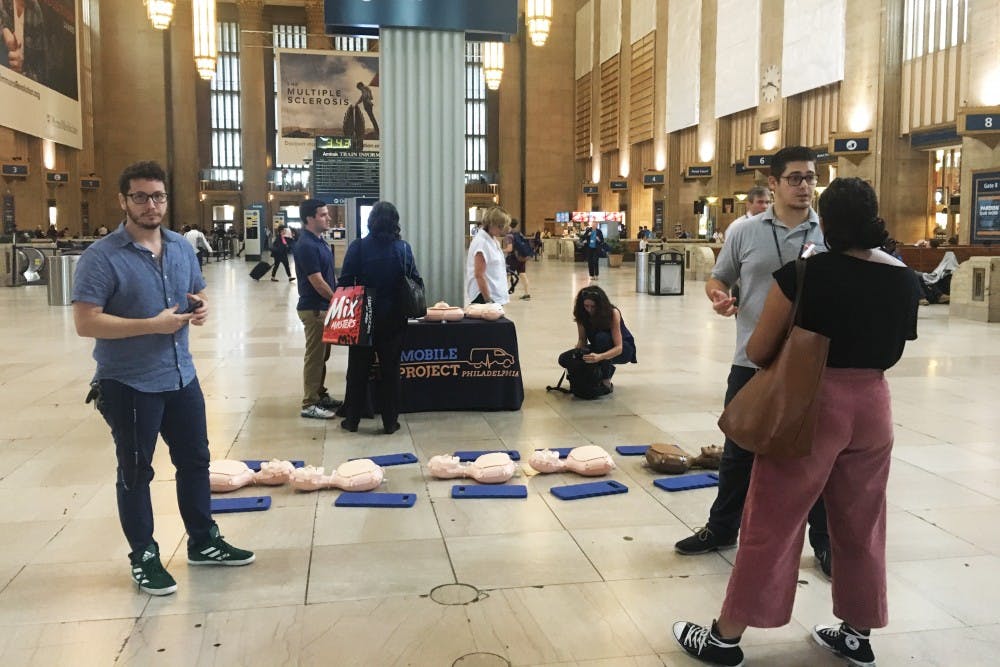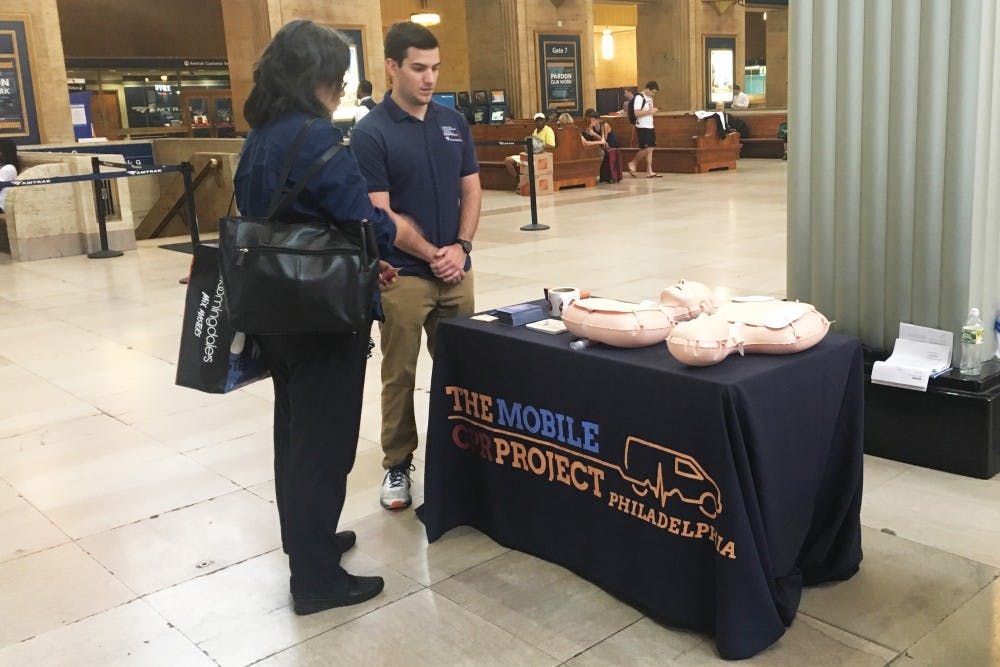
Learning CPR has the potential to become a game changer in improving Philadelphia’s public health — or so Benjamin Abella of Penn Medicine believes.
Partnering with other Penn employees, Abella created the Philadelphia Mobile CPR Project, a group that travels throughout the city to educate Philadelphians, particularly those who live in low income sections of the city, to perform CPR and to master other first-aid skills. Recently, the team initiated a partnership with Amtrak and SEPTA and hosted public classes at 30th Street Station this week.
The group members aim to dispel myths associated with CPR care and to improve the survival rates for those who suffer from sudden cardiac arrest or any other fatal heart conditions.
Abella cited his research at the Center for Resuscitation Science in Penn's department of emergency science as his main impetus for establishing the project. He said his tenure in the center provided him with first-hand exposure to a disparity in first-aid education which exists across socioeconomic classes.

“Our team has focused on cardiac arrest for over a decade here at Penn,” he explained. “CPR education is often done in schools, which means you have to be educated, or places of employment, meaning you have to be employed. So, education often falls down on racial and socioeconomic lines.”
Originally created in 2016, the team now has daily bookings to introduce interested groups to first aid free of charge. It also hosts events that are open to the public.
“There’s a lot of misconception when it comes to CPR or performing CPR on other people, to the point where it’s really affecting survival rates of people going into cardiac arrest," Nabil Abdulhay, the group's project coordinator, said. "The whole point of this project is to really emphasize that it’s easy to do CPR, it’s safe to do CPR, and you’re able to do it as a bystander."
Mobile CPR Project started in Hartford, Conn. and has since expanded to Philadelphia when experts at Penn Medicine’s Center for Resuscitation Science and the Department of Emergency Medicine launched the Philadelphia Mobile CPR Project. According to Penn Medicine, cardiac arrest kills more than 1,000 Philadelphia residents each year, yet the numbers of bystanders who performed CPR in Philadelphia is half of the national average.
The Philadelphia Mobile CPR Project is currently in the process of organizing a partnership with the Philadelphia Airport as well in order to target locations in the city that generate large population traffic, which they hope will increase the scope of their project.
The Daily Pennsylvanian is an independent, student-run newspaper. Please consider making a donation to support the coverage that shapes the University. Your generosity ensures a future of strong journalism at Penn.
Donate







